One of the most notable events at the COP16 Biodiversity Summit in Cali was the presence of Venezuelan Foreign Minister Yvan Gil. He attended the opening of the high-level segment on Tuesday 29 October, which was attended by six heads of state and UN Secretary-General António Guterres.
Conforme a los criterios de

(Lea esta historia en español, aquí)
The dissatisfaction of several delegations, especially from Latin America, and even the questioning of international journalists, was felt in the Blue Zone of the Valle del Pacífico Events Centre, the venue chosen for the most important talks of the Biodiversity Summit.
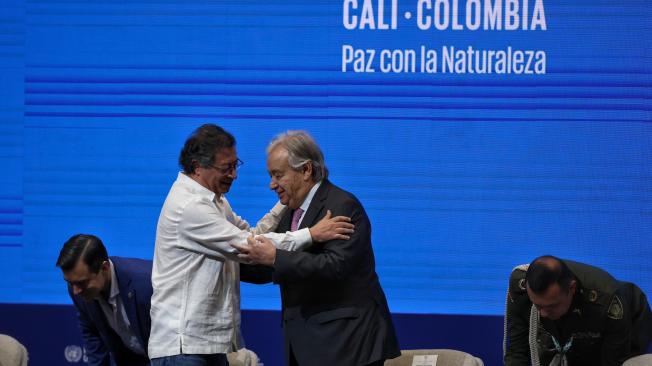
President Gustavo Petro and United Nations Secretary-General Antonio Guterres.
Foto:Santiago Saldarriaga. EL TIEMPO
The discrediting of Nicolás Maduro's regime after the presidential elections on 29 July has not stopped. Despite the insistence of several international organisations, including the UN, that the electoral process be transparent, the president was sworn in and continued to govern.
In light of this, Secretary-General António Guterres was asked about the issue at a press conference with the international media on Wednesday morning.
He replied that the issue should be seen as having 'two different aspects'.
There are different governments that have not yet recognised the government of Venezuela
One is our view of the way the elections were conducted, the lack of proper transparency and the fact that there are different governments that have not yet recognised the government of Venezuela,' he said.
And the other is the mechanism of the multilateral organisations and in particular the COPs. In the COPs there is accreditation, which means that those who are there are those who participate, as long as they are accredited by the country's mission. This is a practice that we cannot change because it is the established legal practice," he added.
Finally, he stressed the position of the United Nations: "This does not invalidate the opinion that we can have about what happened in Venezuela".
The UN position on the Venezuelan elections
Almost two weeks after the elections in Venezuela, the United Nations panel of experts published a preliminary report on their visit to Venezuela: 'The management of the electoral results in Venezuela did not meet the standards of transparency necessary to be credible'.
In the document, they noted that 'the pre-electoral period was marked by continued restrictions on civil and political space. The government campaign dominated the state media, with very limited access for opposition candidates. Numerous restrictions on the right to run for public office remained in place for several prominent political figures.
The announcement of the election result without publication of its details or disclosure of the tabulated results to the candidates is unprecedented in contemporary democratic elections. This had a negative impact on the confidence of a large part of the Venezuelan electorate in the results announced by the CNE,' the panel said.
Earlier in October, an independent UN international mission to Venezuela said it had "reasonable grounds to believe" that Nicolás Maduro's government had committed "crimes against humanity" before, during and after the 28 July presidential election, which was marked by the persecution of opponents and a crackdown on post-election protests.
The 158-page report, which covers the period from 1 September 2023 to 31 August 2024, accuses security forces and pro-government armed civilian groups of killings, enforced disappearances, torture, and sexual and gender-based violence.
It also says that 'statements by the highest state authorities, particularly after 28 July, have incited repression and contributed to a climate of hostility and violence'. Other institutions singled out in the report include the National Electoral Council, which 'failed to meet basic measures of transparency and integrity'; the National Assembly, which 'was instrumental in approving new laws that violate human rights and restrict civil and democratic space'; and the judiciary, which 'continued to operate with a lack of independence'.
EL TIEMPO EDITORIAL BOARD
Editor's note: This text is an artificially intelligent English translation of the original Spanish version, which can be found here. Any comment, please write to berdav@eltiempo.com

.png) hace 3 meses
21
hace 3 meses
21
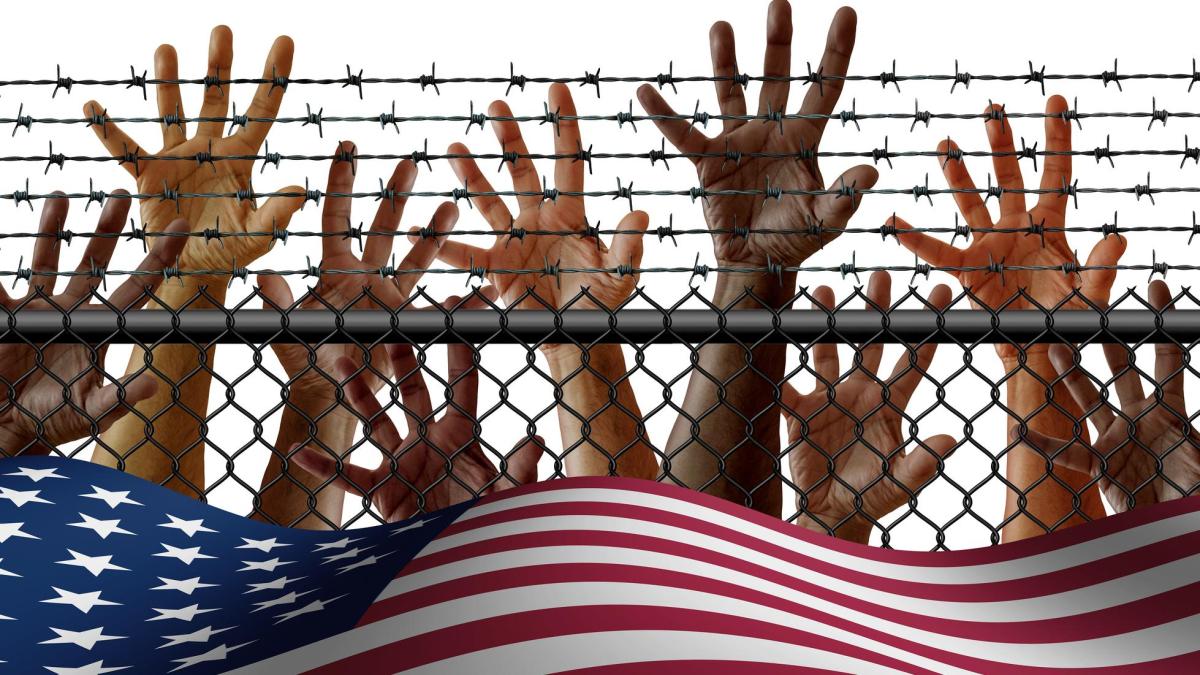
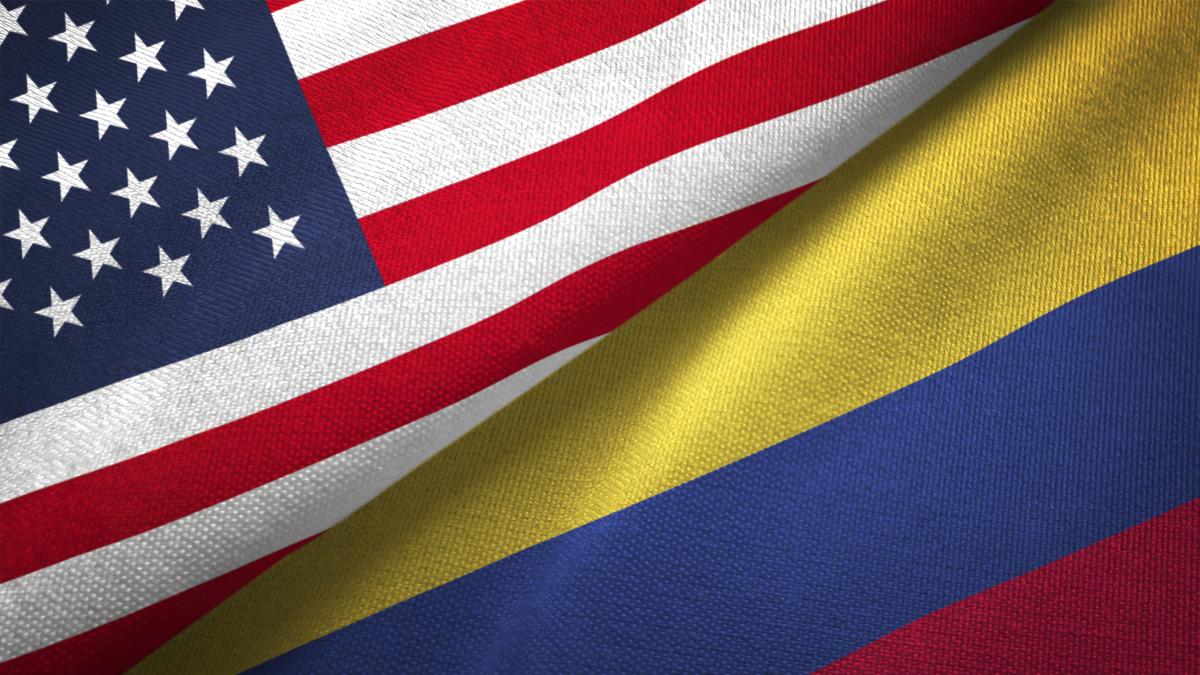





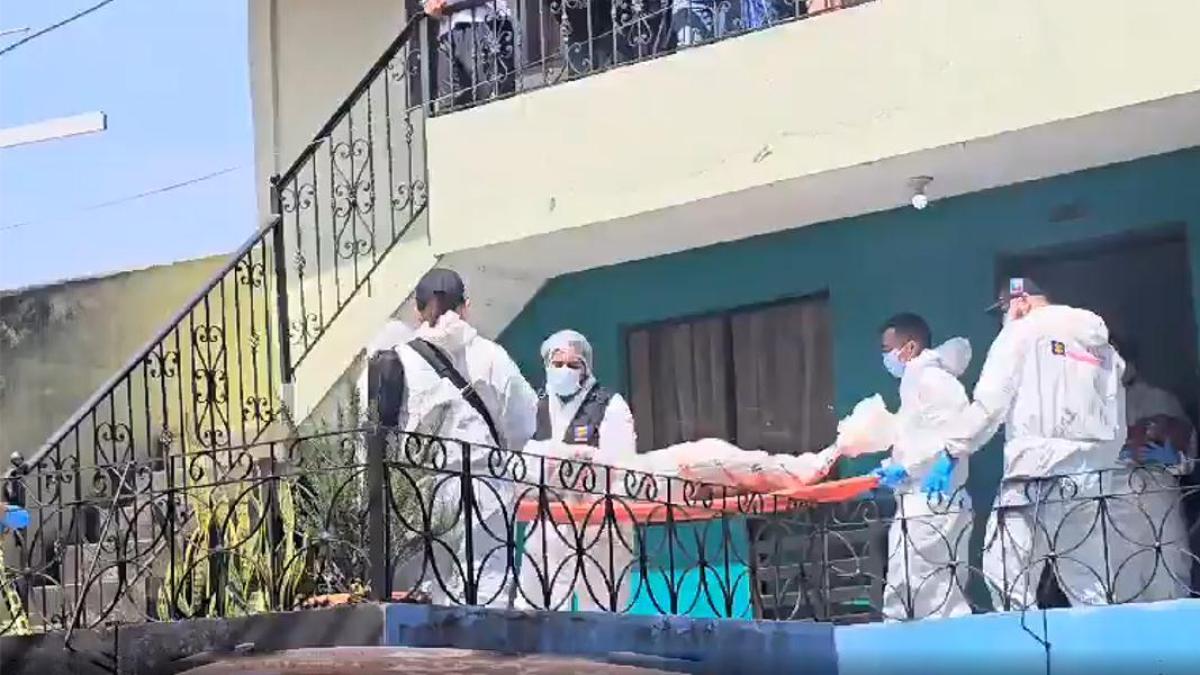
 English (US) ·
English (US) · 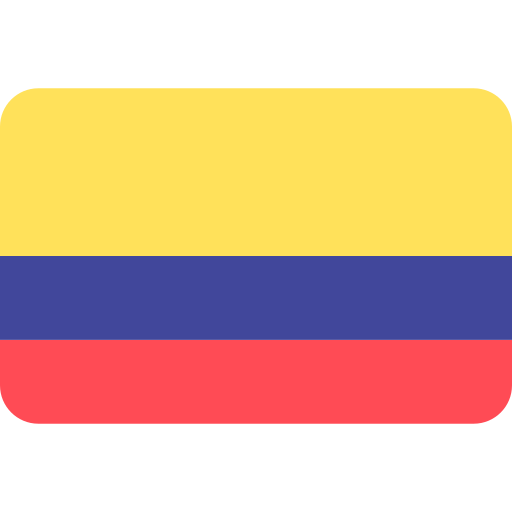 Spanish (CO) ·
Spanish (CO) ·